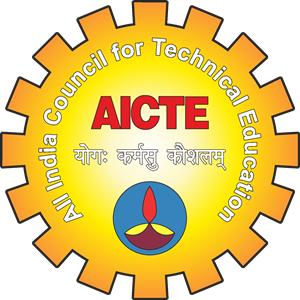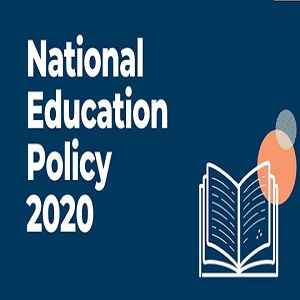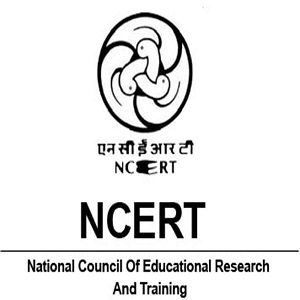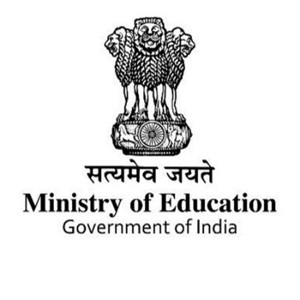|
|
|
|
AICTE approval mandatory for professional courses in India.
Read more
|
From the next academic year, students can appear twice for board exams.
Read more
|
|
|
|
The NCERT has asked the states and Union territories to implement the Holistic Progress Card (HPC) under the NEP 2020 for a “multidimensional progress monitoring” of students up to class 8.
Read more
|
In line with the National Education Policy (NEP) 2020, UGC has introduced the curriculum and guidelines for Life Skills 2.0 (Jeevan Kaushal) for undergraduate students.
Read more
|
|
|
|
CBSE mandates the use of educational materials focusing on learning in students' mother tongues, aligned with the National Education Policy 2020.
Read more
|
Cultivating Social Entrepreneurship in Academic Incubators: Balancing Profit with Purpose
Entrepreneurship is fundamentally about solving problems and designing solutions.
Academic incubators in higher education institutions support students' entrepreneurial ideas by refining and defining them, and by helping students understand the market value of their ideas. These incubators nurture Startup ideas at the nascent stage, but it is essential to consider the type of ideas being incubated. Do these ideas have a commercial priority, or do they serve a broader purpose?
When we look into their mission, vision and purpose, the incubators of higher education institutions often emphasize fostering the entrepreneurial spirit among students and nurturing innovation and change through entrepreneurial ventures.
However, a crucial question arises regarding the nature of these innovations and the underlying motivations, especially in light of evolving societal challenges and the holistic aim toward sustainability, which is increasingly important.
Often, commercialized cinema, advertisements, and pop culture perpetuate a false notion that entrepreneurship is solely a money-making endeavor among students. However, entrepreneurship encompasses many dimensions, one of which is creating social value and impact through business. Established entrepreneurs are often of the opinion that learning about entrepreneurship from a young age is an important stepping stone for the youth. Keeping that view in mind, higher education incubators, centers for innovation, and entrepreneurship play a crucial role in helping students understand the nuances of building an enterprise and viewing career paths differently from an early age.
Despite efforts to promote sustainability through clubs, interactions, and guest lectures, the awareness of social startups remains limited among students and faculty.
The prevalence of social enterprises incubated at higher education institution is still low. Nevertheless, there are promising examples, such as agri-preneurship initiatives and entrepreneurial activities involving farmers in rural Karnataka, practiced by some renowned colleges in Bangalore.
Social entrepreneurship is crucial for students with entrepreneurial aspirations. It prioritizes social and environmental impact alongside financial profit, addressing global challenges such as poverty, inequality, and climate change. Social enterprises create economic opportunities for marginalized communities, promote sustainable business practices, and foster innovation and collaboration across sectors, driving large-scale change. Academic incubators have the potential
to proliferate and promote social entrepreneurship initiatives, given their resources, infrastructure, and industry connections.
To support social entrepreneurship, incubators should teach business with an emphasis on creating positive societal and environmental change, businesses that aims to empower communities, build trust through ethical and responsible choices, and be responsive to public needs. Higher education institution incubators can educate students about various business models, including those used by social enterprises such as donate-back, impact investing, and hybrid models that combine for-profit and non-profit elements. Choosing the right model helps social entrepreneurs attract funding and partnerships, expand their reach, and ensure financial sustainability while creating meaningful and lasting social impact.
To achieve this, incubators can invite professionals, provide networking opportunities, collaborate with sustainable investment venture capitalists for crowdfunding ideas, and offer different grants. Mentorship programs can help students grow their mindset to prioritize impact with a hybrid model of profit with purpose. Awareness is the key, and with their potential, incubators can significantly proliferate this initiative, enabling students to develop in areas that prioritize social impact.
Ms. Soumili Mohanty
Intern, CESS
BA(EPH), 4th Sem, 2nd Year
Christ Deemed to be University
Bengaluru
|
Karnataka govt to end 4-year honours degree course under NEP.
Read more
|
|
|
|
The Karnataka government has released a government order limiting the degree programmes in the state to three years.
Read more
|
The Department of School Education and Literacy (DSEL) on released a list of over 17,000 private schools in Karnataka that have received its authorization.
Read more
|
|
|
|
The Department of School Education and Literacy has suggested open book exams in the high schools of Karnataka.
Read more at:
Read more
|
Meghaa Gupta writes: How outside-the-classroom initiatives are redefining History education in India/
Read more
|
|
|
|
Sumit Kumar writes: Bridging India’s education-employability gap: The rise of degree apprenticeships
Read more
|
R. W. Alexander Jesudasan writes: Analysing the recent UGC notification on the UG Honour’s degree with research
Read more
|
|
|
|
Dr. khurhsid A Tariq writes: Four year undergraduate degree and the opportunities ahead
Read more
|
Centre for Educational and
Social Studies
The Centre for Educational and Social
Studies (CESS) is a registered society
established in 2006. Since its
inception CESS has been working in the
field of education. CESS, guided by
its vision of bringing about ‘Social
Transformation Through and With
Education’ is striving to draw the
attention of stakeholders, including
State and Central Government, on vital
issues of education. We at CESS engage
in Research, Policy Advocacy and
Capacity Building in the broad sphere
of Education. In the recent past,
since the unveiling of NEP, CESS has
conducted over 100 webinars and
stakeholders consultations on policy
awareness and on policy implementation
and has reached out to more than
30,000 stakeholders of education. CESS
has launched ‘NEP Ready’-a capacity
building training workshops to
facilitate HEIs in the effective
implementation of NEP 2020.
Disclaimer: This document is being
presented to you for your information.
The information and opinions in the
news articles contained in Shikshana
Mahithi are captured from the
government websites and authors of the
articles. CESS is a not-for-profit
organization and does not endorse the
presented news.
|
|
|













